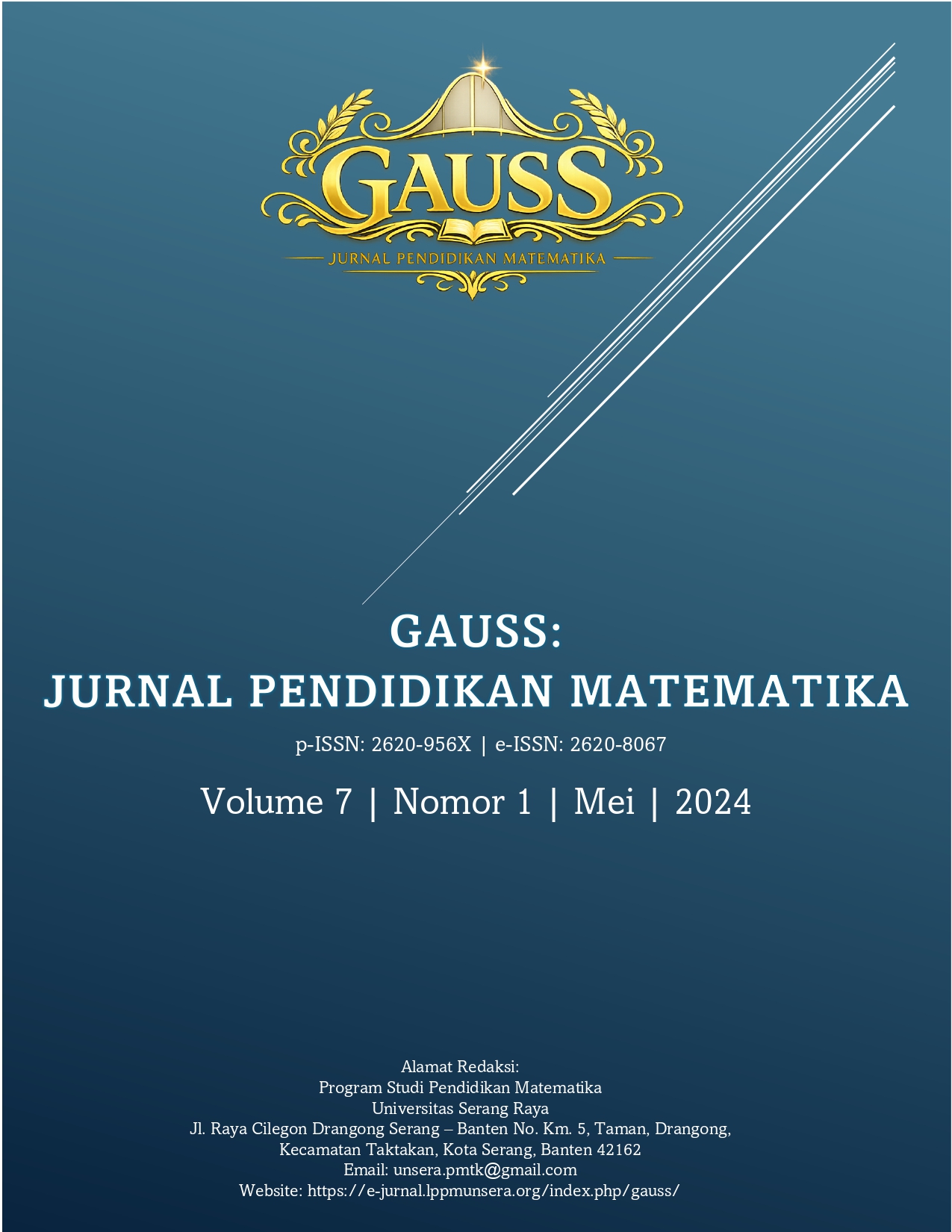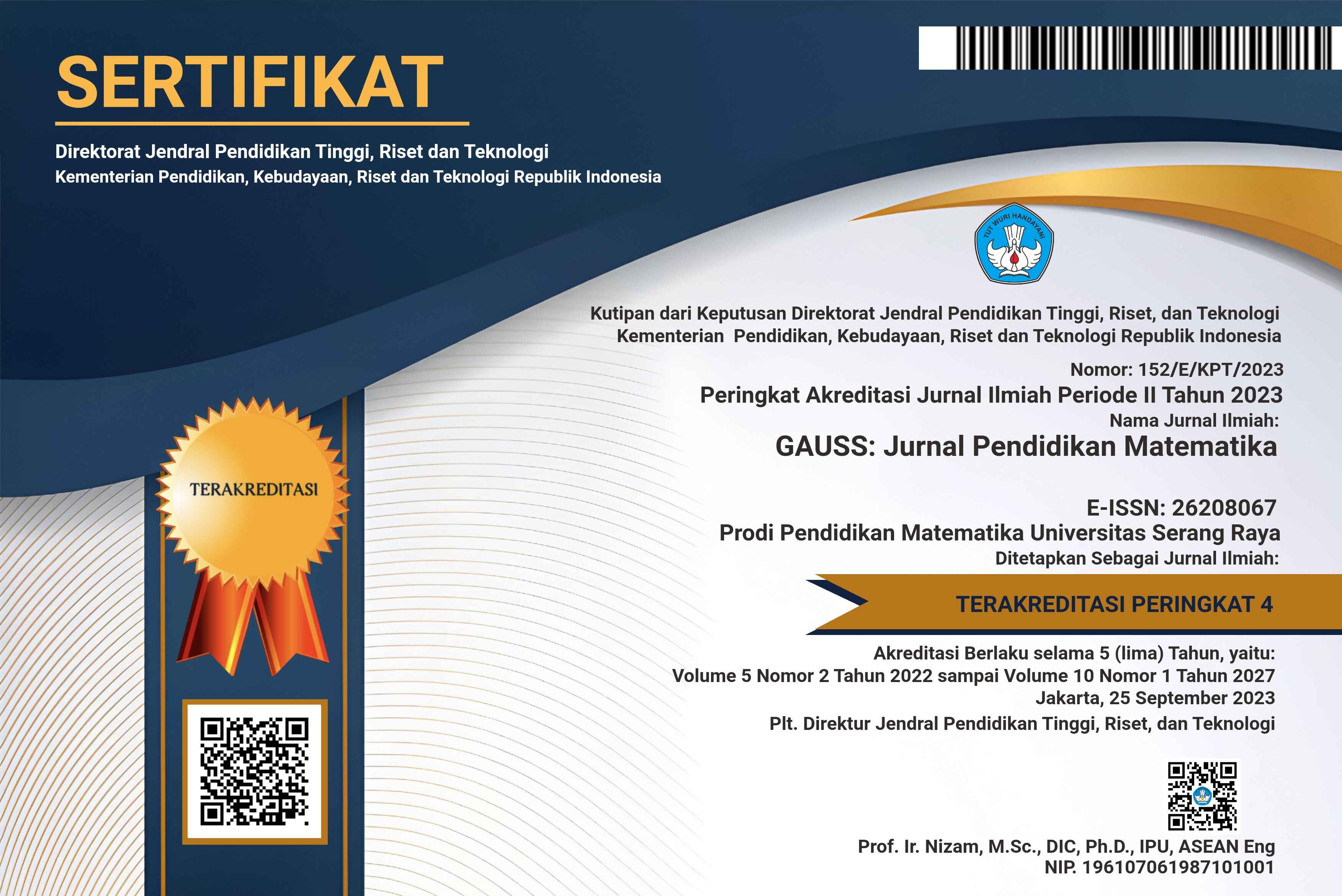Analisis Pengaruh Metode Pembelajaran Matematika Realistik terhadap Minat Belajar Matematika Siswa Kelas VII SMP Negeri 2 Rantau Utara
DOI:
https://doi.org/10.30656/gauss.v7i1.8495Abstrak
Tujuan penelitian ini adalah untuk melihat pengaruh penerapan model pembelajaran matematika realistik terhadap minat belajar matematika siswa. Penelitian ini merupakan penelitian quasi ekspriment (eksprimen semu) yang dilakukan di SMP Negeri 2 Rantau Utara T.A 2023/2024 pada pokok bahasan kubus dan balok. Kesimpulan dari hasil angket yang didapat dari siswa kelas VII, skor rata-rata minat belajar matematika siswa yang diberi perlakuan model pembelajaran matematika realistik lebih baik dibandingkan skor rata-rata minat belajar siswa yang diberi perlakuan model pembelajaran konvensional. Skor rata-rata siswa yang diterapkannya model pembelajaran matematika realistik yaitu sebesar 93,21 sedangkan skor rata-rata siswa yang diberi perlakuan model pembelajaran konvensioanl sebesar 72,93. Dalam perhitungan uji t diperoleh nilai t hitung pada taraf signifikansi sebesar 0,349 > 0,05 sehingga dapat disimpulkan ada pengaruh model pembelajaran matematika realistik terhadap minat belajar matematika siswa kelas VII SMP Negeri 2 Rantau Utara.
Kata kunci: Model pembelajaran matematika realistik, Minat belajar matematika
Unduhan
Diterbitkan
Terbitan
Bagian
Lisensi
Authors who publish articles in GAUSS : JURNAL PENDIDIKAN MATEMATIKA agree to the following terms:
- Authors retain copyright and grant the journal the right of first publication with the work simultaneously licensed under a Creative Commons Attribution-ShareAlike 4.0 International License that allows others to share the work with an acknowledgment of the work's authorship and initial publication in this journal.
- Authors are able to enter into separate, additional contractual arrangements for the non-exclusive distribution of the journal's published version of the work (e.g., post it to an institutional repository or publish it in a book), with an acknowledgment of its initial publication in this journal.
- Authors are permitted and encouraged to post their work online (e.g., in institutional repositories or on their website) before and during the submission process, as it can lead to productive exchanges, as well as earlier and greater citation of published work (See The Effect of Open Access).




